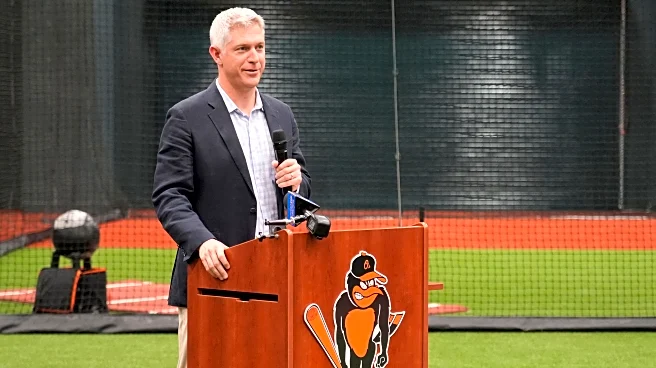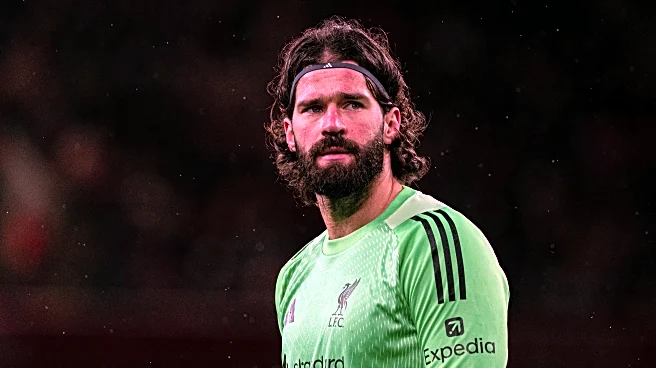What's Happening?
Australian Formula 1 driver Daniel Ricciardo returned to Austin, Texas, but not in the capacity fans had hoped for. Known for his strong connection with Texas, Ricciardo was in town for his Enchante pop-up
store event, promoting his personal brand rather than participating in the Formula 1 United States Grand Prix. Despite expectations of a surprise appearance at the Circuit of the Americas, Ricciardo chose to stay away from the F1 paddock, a decision that surprised many. His absence is speculated to be linked to lingering emotions from his abrupt exit from VCARB last year. Although he is now a Ford Racing ambassador, Ricciardo did not attend the event in any official motorsport capacity.
Why It's Important?
Ricciardo's absence from the F1 paddock in Austin highlights the emotional and professional challenges athletes face after significant career changes. His decision not to engage with the F1 community during the USGP weekend underscores the impact of his previous abrupt departure from the sport. This situation reflects broader themes in sports where athletes must navigate personal and professional transitions, affecting their public engagements and fan interactions. For the Austin community and F1 fans, Ricciardo's absence was a missed opportunity to celebrate his contributions to the sport and his unique bond with Texas.
What's Next?
While Ricciardo's future in Formula 1 remains uncertain, his continued involvement in motorsport through his role as a Ford Racing ambassador suggests he may still influence the industry in other capacities. Fans and the Austin community may look forward to potential future engagements where Ricciardo could reconnect with the F1 scene. Meanwhile, the emotional and professional aspects of his career transition may continue to shape his public appearances and involvement in racing events.
Beyond the Headlines
Ricciardo's situation highlights the broader cultural and emotional dimensions of sports careers, where personal identity and professional roles often intersect. His honorary Texan status and the affection from fans illustrate the deep personal connections athletes can form with specific communities, transcending their professional achievements. This case also raises questions about how athletes manage public expectations and personal well-being after significant career shifts.










